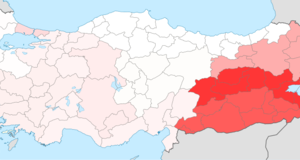From Clocks and Clouds VOL. 7 NO. 1New Methods Of Democratic Consolidation: The Application Of Citizenship Laws In Ethnically Fractured StatesEstoniaIn several ways, Estonia's democratization story shares similarities with Latvia's. Both transitions and consolidations occurred toward the end of the Soviet Union's regional hegemony, both states faced ethnic factionalism, and both states used a combination of Jus Soli and Jus Sanguinis to resolve this cleavage. The cases differ, however, in the origins of the democratization. Li Bennich Bjorkman (2007, 341) asserts that Estonia's democratization specifically came as a result of two unique circumstances: Estonia's robust social and civil societies and a strong zeitgeist of communalism and cooperation. The result of these two circumstances meant that the Estonian polity, in addition to experiencing the same pressures as Latvia to democratize and liberalize in order to retain protection from Russia, strongly felt that democracy was the appropriate system of government for their country. Despite this ostensibly favorable scenario for democratic consolidation, cleavages between ethnic Estonians and Russians threatened to destroy any democratic system of governance. The last census taken before Soviet control of Estonia was in 1934 (Linz and Stepan 1996a, 403). This census shows that 88.8% of the population was ethnically Estonian, while 8.2% was Russian. In 1984, the last census taken during Soviet rule, ethnic Estonians only constituted 61.5% while ethnic Russians comprised 30.3% of the population (Ibid, 403). Efforts to "Russify" Estonia contributed to this cleavage and, as in Latvia, created significant tensions between ethnic Russians and Estonians. In a 2010 interview given to Baltic news organization, Baltic Reports, University of Tartu professor Marju Lauristin contested that ethnic Russians had faced and continue to face discrimination at the hands of the state (Joost 2010). Despite the bias against ethnic Russians in Estonian politics, a 1990 survey showed that 76.6% of ethnic Russians feel either "proud" or "very proud" to live in a "republican Estonia," or in other words, a democratic Estonia (Linz and Stepan 1996a, 412). Acceptance of a democratic Estonia by ethnic Russians, who were legally disadvantaged compared to ethnic Estonian citizens, can be attributed to the full extension of citizenship rights to every Estonian, regardless of ethnicity. Estonia's citizenship doctrine is informed through a mixture of Jus Soli and Jus Sanguinis. Individuals born in Estonia with at least one parent who is a citizen are granted citizenship. Moreover, an individual born to an Estonian parent outside of Estonia is also a citizen. Furthermore, a path to naturalization is quite simple, requiring only eight years of residency and a rudimentary understand of Estonian law and language (Estonia.eu 2016). These policies ensure a steady stream of ethnic Estonians with Estonian citizenship, securing the ethnic Estonian majority. Lastly, voting rights are extended to non-citizen residents in local elections. Because most governing is done at the local level, ethnic Russians, who may opt-out of Estonian citizenship, can still provide input to policies that directly affect them, thereby increasing cohesiveness among the demos. Because of the ethnic distribution, the Estonian polity could feel comfortable extending liberal democratic rights to non-ethnic Estonians, as well as streamlining an often-complicated naturalization process. These aspects of Estonian citizenship and voting law facilitated the democratic consolidation of Estonia without compromising the ideals of a democratic revolution. Furthermore, the broadness of Estonian citizenship and voting law present a hopeful path forward. Because ethnic identities are fluid, it can become difficult to fairly codify who can and cannot gain citizenship, yet Estonia has successfully circumvented this through their naturalization process. Thus, along with Latvia, Estonia's citizenship model presents a successful model for resolving ethnic tensions in a transitioning democracy. IsraelAlthough Israel obtained a semblance of democracy, it did not resolve the ethno-religious cleavage of the Jewish-Arab divide. Thus, Israel should not be viewed as having fully consolidated. The population is not fully cohesive, and thus, its democratic system faces serious threat of dissolution. Regardless of Israel's disunity, there is a general consensus in political science arguing that Israel is more democratic than not. This is reflected by Freedom House, an organization that maintains democratic indexes, which ranks Israel as a 1.5 on its 7-point scale (Freedom House 2016). Freedom House's scale ranges from a 1 to a 7, with 1 representing a full democracy, and 7 a full autocracy (Freedom House 2016). Likewise, the Polity Data Series, another organization that maintains democratic indexes, also states that Israel is a democracy (Marshall 2010). While not everyone living in Israel is happy with the system governing them, Israel does indeed reflect numerous notions of democracy; however, Israel lacks the cohesive demos required for full democratic consolidation. Although the most recent Polity Data Series article highlighting Israel was published in 2010, its key point of proportional representation in the Israeli legislature, the Knesset (Marshall 2010, 2), illuminates how Israel maintains its democratic character. The Jewish polity feels secure enough in its majority that it can maintain its more equitable policies without jeopardizing the governmental hierarchy. Through preserving the democratic order and institutions, transitions to reaching a more stable solution to ethnic conflict will become more feasible. Attaining the critical mass of support necessary for initial democratic consolidation involved a large degree of manipulation of Israel's citizenship laws. The modern Israeli state formed in the aftermath of the 1947 UN Partition Plan (Israel Ministry of Foreign Affairs 2013b). The Israeli state was to be a strong democracy and safe haven for Jews fleeing Europe following the Second World War. While on one hand these goals may seem righteous, they sparked outrage in the Arab world due to the perception that Zionism was merely a veiled colonialist enterprise, forming the basis for the political and social cleavages troubling Israel today (Golan 2001, 129). Supporters and opponents of Zionism generally fell across the ethnic and social lines of Jews and Arabs (Ibid, 129). The 1948 Israeli census showed that approximately 87% of the Israeli population was Jewish, with the remaining 13% consisted mainly of Arabs (Rabinovich and Reinharz 2008, 571-572). The Jewish polity, acknowledging that Arabs composed (and continue to compose) a significant portion of the population, offered full political rights irrespective of religious or ethnic identity; however, this offer was conditional on citizenship, which is made problematic by right to return law, which stipulates that the Jus Soli connection between people and land means Jews have a privileged access to Israeli citizenship while non-Jews have a more difficult path (Shapira 2012, 460). Due to the absence of a formal constitution, these rights and liberties were codified in Israel's declaration of independence and basic laws. Israel's basic laws are the roots from which future Israeli law stem. The Israeli basic laws plainly state that Israeli nationals should have the fundamental rights that are integral to any consolidated democracy, without making any mention of race, religion, or other forms of identity apart from citizenship (Yitzhak, Weizman, and Weiss 1948). This policy guarantees the same political rights to all Israelis, and purports the acceptance of the regime. Furthermore, the ideological underpinning of the formal Israeli state, the Israeli declaration of independence, calls upon Arabs to, "preserve peace and participate in the upbuilding of the State on the basis of full and equal citizenship and due representation in all its provisional and permanent institutions" (Ben-Gurion 1948). Thus the ostensibly liberal offers made by Israel only existed to a narrow set of individuals. Access to citizenship was, and still is, difficult for non-Jews to obtain. In practice, the Israeli polity established a citizenship doctrine capable of preserving the Jewish identity and majority in the Knesset, or, the Israeli Parliament, through the implementation of Jus Sanguinis and Jus Soli. Israeli citizenship law stipulates that citizenship may be granted to individuals born to at least one Israeli parent, individuals born within the borders of Israel, and to those who have lived in Israel for five years, three of which must be spent within the borders of Israel (Israel Ministry of Foreign Affairs 2010a). Furthermore, Israel operates under a "right to return policy," under which Jews across the world possess the ability to immigrate to Israel and obtain citizenship (Ibid). The right to return policy, however, is also one of the key inhibitors of full democratic consolidation and the healing of the Arab-Israeli cleavage. The right to return policy operates under the belief that individuals should always be able to emigrate back to their indigenous land (Shapira 2012, 461-62). While Israel fully extends this right to Jews, it does not do so for Arabs (Ibid). This policy privileges Jews over Arabs. While Jews have an easy path to citizenship, Arabs do not (Ibid). This divide has formed a large point of contention, and endangers a democratic solution to the conflict between Arabs and Jews because of the unequal access to citizenship (Ibid). Although Israel has adopted key democratic institutions, afforded many of the necessary democratic rights to its demos, and for all intents and purposes functions as a democracy, this is only true for Israeli citizens. Israel does not offer access to citizenship equally, and thus, should not be considered a fully consolidated democracy. Conclusions and Areas of Future ResearchI began this project to identify a model with which ethnically fractured states could consolidate democratically. Utilizing the fair and equal extension of citizenship laws as the independent variable, and a consolidated democracy as the dependent variable, I argue that genuinely equal access to the benefits of citizenship is the most important avenue toward consolidation. I offer this solution because of the flaws I identify with consociationalism and federalism. While those models perhaps offer more digestible solutions to elites, they fail to alleviate the structural barriers to a cohesive society in the way that egalitarian citizenship laws do. I recommend additional research into two areas related to this article. First, identifying more effective solutions to ethnic fragmentation in states without intense desires to democratize demands more study. Second, additional survey research into the opinions of minority groups living in this system should also be conducted. It would be valuable to ascertain the level of their continued support of the government under which they live. Democratic transitions are a supremely difficult undertaking. Numerous cases display the careful tightrope that democrats must cross. It is all too easy for politicians to embrace authoritarian or illiberal tendencies to resolve issues inhibiting their consolidation of power. To alleviate ethnic tensions, leaders frequently use oppressive strategies, from political and social suppression, to genocide. I propose a new path for democrats. Rather than indulging in ethnically charged policies such as land relocation or ethnic cleansing to create a more cohesive society, democrats should extend citizenship rights to all individuals. The guaranteed protections of citizenship make rule by a majority ethnic group more palatable to a minority group. The cases of Latvia and Estonia demonstrate that equal access to citizenship incorporates and imbues a cohesive identity among the population, while unequal access to citizenship in Israel highlights the problems that occur when a state tries to organize itself by democracy and ethnicity, an incompatible combination. AuthorAdam Goldstein is a student of Comparative Politics. He graduates in May of 2017. School of Public Affairs (SPA), American University. Email: ag8045a@student.american.edu ReferencesÅslund, Anders and Valdis Dombrovskis. 2011. How Latvia Came through the Financial Crisis. Washington: Peterson Institute for International Economics. Centrālā Statistikas Pārvalde. "2011 Latvian Census." CSB.gov. 2011. Accessed August 17, 2016. http://www.csb.gov.lv/en/statistikas-temas/population-census-2011-keyindicators33613.html. Israel Ministry of Foreign Affairs. 2013a. "Acquisition of Israeli Nationality." Mfa.gov.il. January 1, 2010. Accessed August 19, 2016. http://www.mfa.gov.il/mfa/aboutisrael/state/pages/acquisition%20of%20israeli%20nationality.aspx. Israel Ministry of Foreign Affairs. 2013b. "UN Partition Plan." MFA.go.il. Accessed August 19, 2016. http://mfa.gov.il/MFA/AboutIsrael/Maps/Pages/1947%20UN%20Partition%20Plan.aspx. Israel Ministry of Foreign Affairs. 2010. "Dayton Agreements." Dayton Agreements. Accessed August 24, 2016. https://www.mtholyoke.edu/acad/intrel/bostalk.htm. Anderson, L. M. 2004. "The Institutional Basis of Secessionist Politics: Federalism and Secession in the United States." Publius: The Journal of Federalism 34 (2): 1-18. Ben-Gurion, David. "Declaration of Establishment of State of Israel." MFA.gov. Accessed August 10, 2016. http://www.mfa.gov.il/mfa/foreignpolicy/peace/guide/pages/declaration%20of%20establishment%20of%20state%20of%20israel.aspx. Bennich-Bjorkman, L. 2007. "The Cultural Roots of Estonia's Successful Transition: How Historical Legacies Shaped the 1990s." East European Politics & Societies 21 (2): 31647. Human Rights Watch. "Bosnia: A Move to End Discrimination." Human Rights Watch, November 2, 2011. Reuters. "Bosnia Jew Seeks to Reverse Ban on Running for President." Haaretz, May 6, 2009. Brubaker, Rogers. 1992. Citizenship and Nationhood in France and Germany. Cambridge: Harvard University Press. Estonia.eu. "Citizenship." Estonia.eu. July 4, 2016. Accessed August 18, 2016. http://estonia.eu/about-estonia/society/citizenship.html. Collins, Kristin A. 2014. "Illegitimate Borders: Jus Sanguinis Citizenship and the Legal Construction of Family, Race, and Nation." Yale Law Journal 123 (7): 2134-67. Critchley, W. Harriet. Jul. 1993. "The Failure of Federalism in Yugoslavia." International Journal 48 (3): 434-47. Erk, Jan and Lawrence M. Anderson. 2010. The Paradox of Federalism: Does Self-Rule Accommodate or Exacerbate Ethnic Divisions? London: Routledge. Copenhagen European Council. 1993. "EUR-Lex Access to European Union Law." Glossary of Summaries. Accessed August 10, 2016. http://eur-lex.europa.eu/summary/glossary/accession_criteria_copenhague.html. Evans, Alfred B. 2011. "The Failure of Democratization in Russia: A Comparative Perspective." Journal of Eurasian Studies 2 (1): 40-51. Golan, Arnon. 2001. "European Imperialism and the Development of Modern Palestine: Was Zionism a Form of Colonialism?" Space and Polity 5 (2): 127-43. Havel, Vaclav. "Vaclav Havel's Ideas and His Civil Society Conception." Speech, Vaclav Havel's Civil Society Symposium, Macalester College, Minneapolis, April 26, 1999. Freedom House. "Israel." Freedom House. Accessed August 19, 2016. https://freedomhouse.org/report/freedom-world/2016/israel. Joost, Kai. "Ethnic Russians Have It Tough in Estonia." Baltic Reports, February 2, 2010. Kasapović, Mirjana. 2006. "Bosnia and Herzegovina: Consociational or Liberal Democracy?" Politička Misao XLII (5): 3-30. Law, John. 2013. "How Can We Define Federalism?" Perspectives on Federalism 5 (3): E-88-E-120. Lijphart, Arend. 1971. "Comparative Politics and the Comparative Method." The American Political Science Review 65 (3): 682-93. Lijphart, Arend. 1979. "Consociation and Federation: Conceptual and Empirical Links." Canadian Journal of Political Science 12 (3): 499-516. Lijphart, Arend. 1969. "Consociational Democracy." World Politics 21 (2): 207-25. Linz, Juan J. and Alfred C. Stepan. 1996a. Problems of Democratic Transition and Consolidation: Southern Europe, South America, and Post-communist Europe. Baltimore: Johns Hopkins University Press. Linz, Juan J. and Alfred C. Stepan. 1996b. "Toward Consolidated Democracies." Journal of Democracy 7 (2): 14-33. Marshall, Monty G. 2010. "Polity IV Country Report 2010: Israel." Polity IV Country Report 2010: Israel. Accessed August 23, 2016. Moore, Barrington. 1966. Social Origins of Dictatorship and Democracy: Lord and Peasant in the Making of the Modern World. Boston: Beacon Press. Norris, Pippa. 2008. Driving Democracy: Do Power-sharing Institutions Work? Cambridge: Cambridge University Press. Norris, Pippa. 2008. Driving Democracy: Do Power-sharing Institutions Work? Cambridge: Cambridge University Press. Nunn, Caitlin, Celia Mcmichael, Sandra M. Gifford, and Ignacio Correa-Velez. 2015. "Mobility and Security: The Perceived Benefits of Citizenship for Resettled Young People from Refugee Backgrounds." Journal of Ethnic and Migration Studies 42 (3): 382-99. Rabin, Yitzhak, Ezer Weizman, and Shevah Weiss. "Basic Law: Human Dignity and Liberty." Basic Law: Human Dignity and Liberty. Accessed August 19, 2016. http://www.knesset.gov.il/laws/special/eng/basic3_eng.htm. Rabinovich, Itamar and Jehuda Reinharz. 2008. Israel in the Middle East: Documents and Readings on Society, Politics, and Foreign Relations, Pre-1948 to the Present. Waltham: Brandeis University Press. Scott, James Brown. 1930. "Nationality: Jus Soli or Jus Sanguinis." The American Journal of International Law 24 (1): 58-64. Shapira, Anita. 2012. Israel: A History. Waltham: Brandeis University Press. Spatig-Amerikaner, Ary. 2012. Unequal Education: Federal Loophole Enables Lower Spending on Students on Color. Washington: Center for American Progress. Wolfj, Stefan, Dan Landis, and Karen Arnold Clark. 2010. Ethnic Conflict: A Global Perspective. Oxford: Oxford University Press. Suggested Reading from Inquiries Journal
Inquiries Journal provides undergraduate and graduate students around the world a platform for the wide dissemination of academic work over a range of core disciplines. Representing the work of students from hundreds of institutions around the globe, Inquiries Journal's large database of academic articles is completely free. Learn more | Blog | Submit Latest in Political Science |

















